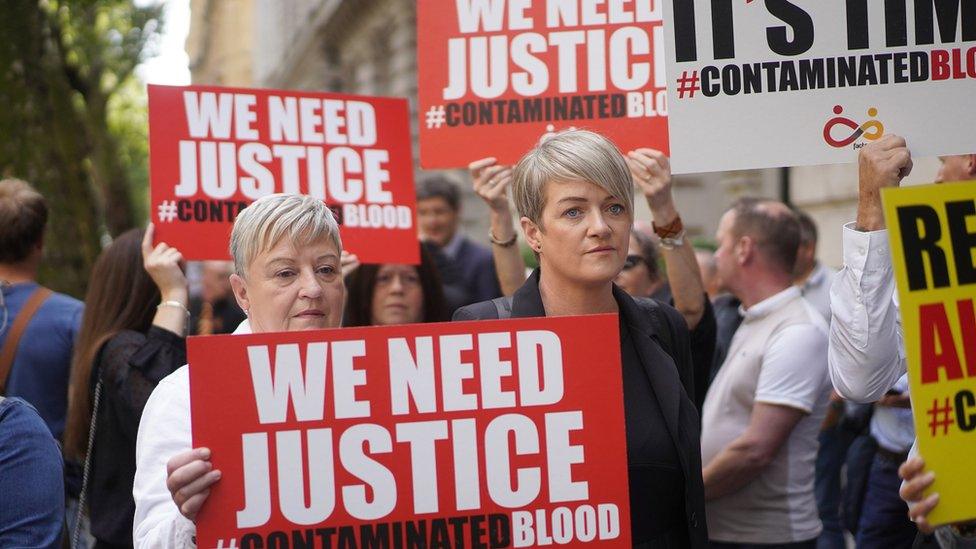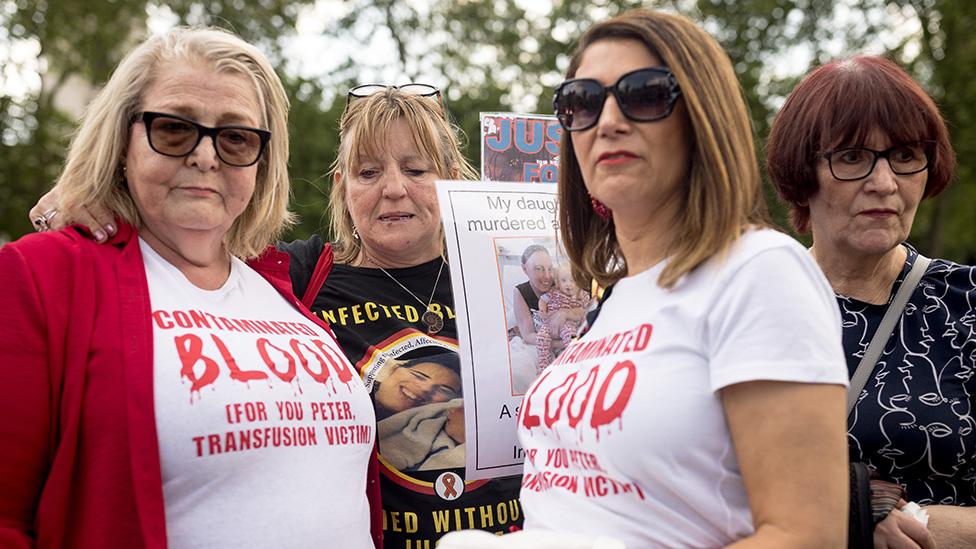Contaminated blood scandal: 'I just feel like they're waiting for me to die'
- Published
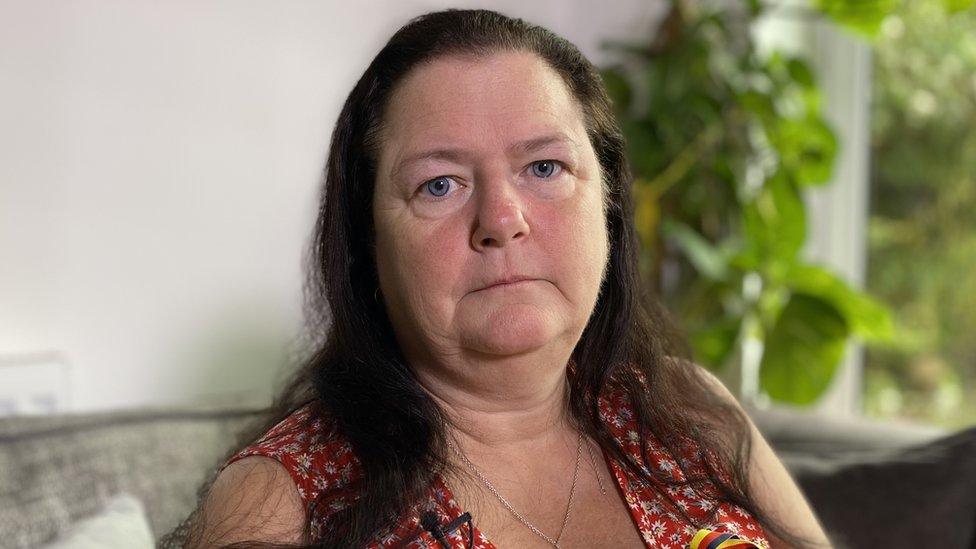
Dena was given infected blood after the birth of her sons in the 1980s
For 35 years, Dena Peacock could not understand why she felt constantly exhausted, unwell and depressed.
After repeated trips to her GP, the now 60-year-old from Warrington was eventually told in 2017 that she had contracted the potentially fatal Hepatitis C virus.
She went on to learn she was one of about 30,000 victims infected by contaminated blood products in the 1970s and 1980s.
Dena is highly critical of the government.
"I just feel like they're waiting for me to die," she told the BBC North West Investigations Team.
The contaminated blood scandal has been described by MPs as the worst treatment disaster in the history of the National Health Service.
With the help of her doctor, the mum-of-six worked out that she had been given infected blood in either 1980 or 1982 - soon after giving birth to her eldest children.
In 1980, aged 16, Dena was rushed into the now-closed Roose Hospital in Barrow, Cumbria, for a procedure to remove afterbirth following the delivery of her first son.
She said: "Afterwards, I was told 'you're a new mum, you're going home, we recommend you have blood rather than iron tablets'.
"I was told 'it's just like a tonic to perk you up, if we don't give you blood we will give you iron tablets and it will take a while'."
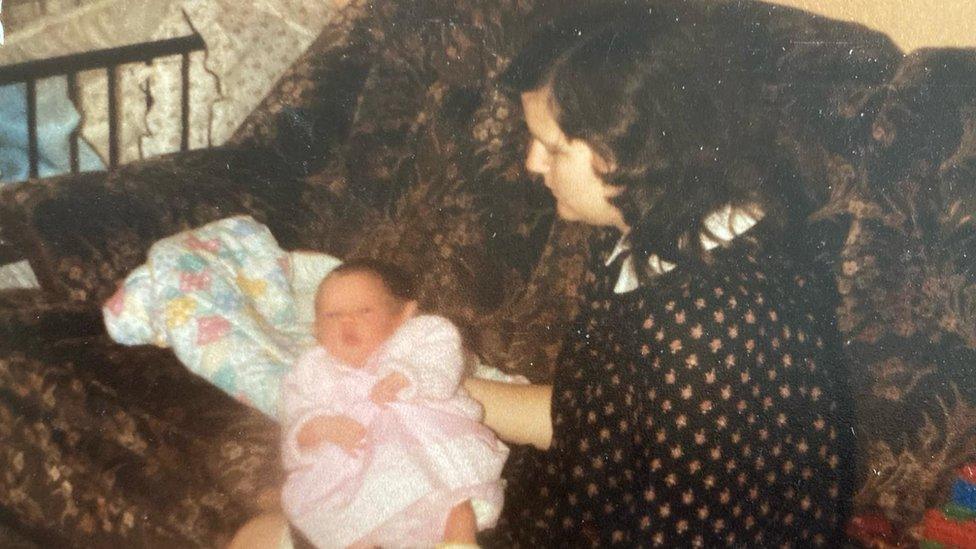
Dena, seen here in 1984 with one of her daughters, feared her children had also been infected
In 1982, Dena was again offered a blood transfusion or iron tablets after complications with the birth of her second son.
"I went with blood because I was told it was best," she said.
Blood donations were not routinely screened for Hepatitis C in the UK until 1991 - 18 months after the virus was first identified in a laboratory.

Read more on the infected blood inquiry

The virus can cause flu-like symptoms, such as muscle aches and a high temperature, fatigue, loss of appetite and depression.
Between 10% and 40% of people with untreated chronic Hepatitis C will go on to develop scarring of the liver.
About one in five people with cirrhosis will then develop liver failure, which can be fatal.
"After having my children I would be in bed for two days at a time, exhausted," Dena said. "I was not able to do anything.
"When I went to the doctors, he said 'you're working full time, what do you expect, you've got children, just get on with it'.
"I got depressed, I saw people around me and I couldn't understand how they're managing better than me."
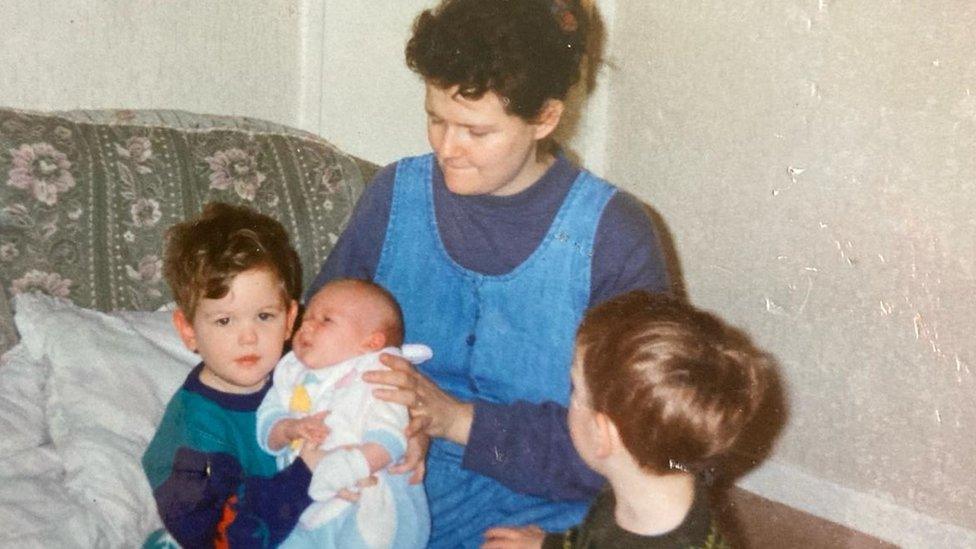
Dena, seen here with her sons, had to ask all of her children to get tested for Hepatitis C
Dena said she had to leave her job and subsequently lost both her home and car.
"I just felt the lowest of the low," she said.
It was only seven years ago, when the former Home Office worker went to her GP feeling unwell, that Dena learned of her infection.
She said: "The doctor said my liver function wasn't very good. He insisted I had a blood test [and] it came back that I had Hep C.
"I was so shocked and then everything just fell into place - all the years of being tired - and then there was the trauma of me thinking I could have passed it on."
While Dena's children all tested negative, for her the damage had already been done.
The mum-of-six's liver was severely damaged and she needed £14,000 worth of specialist treatment to stop it deteriorating further.
"I was told if I don't get this treatment I might possibly die, but I found out that I could still die because of the damage the virus has already done," said Dena, who is cared for by her husband Dave.
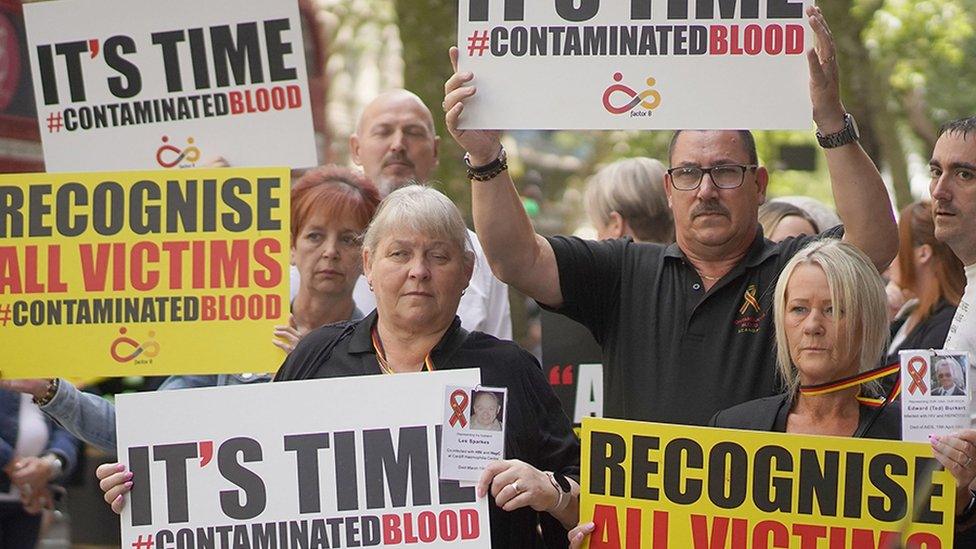
Victims of the contaminated blood scandal have been battling for justice for years
A public inquiry into the blood scandal started in 2019 after years of campaigning by victims.
The government has been widely accused of dragging its feet over compensation and the prime minister was heckled when he appeared before the inquiry last year, pledging to pay out "as swiftly as possible".
The inquiry, chaired by retired judge Sir Brian Langstaff, is due to publish its final report next month.
"The government need to stop messing around and stop punishing us," Mrs Peacock said.
"There's people out there that have lost children, they've lost fathers, they've lost mothers. Get this sorted and let us have some kind of life."
A government spokesperson said: "This was an appalling tragedy and our thoughts remain with all those impacted.
"We are clear that justice needs to be delivered for the victims and have already accepted the moral case for compensation.
"This covers a set of extremely complex issues, and it is right we fully consider the needs of the community and the far-reaching impact that this scandal has had on their lives."

Why not follow BBC North West on Facebook, external, X, external and Instagram, external? You can also send story ideas to northwest.newsonline@bbc.co.uk, external
- Published28 February 2024
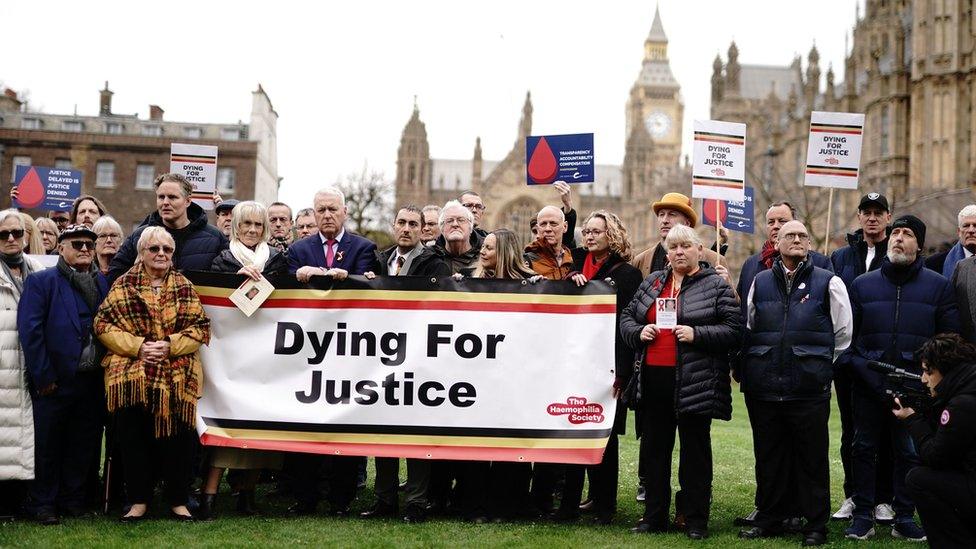
- Published5 April 2023
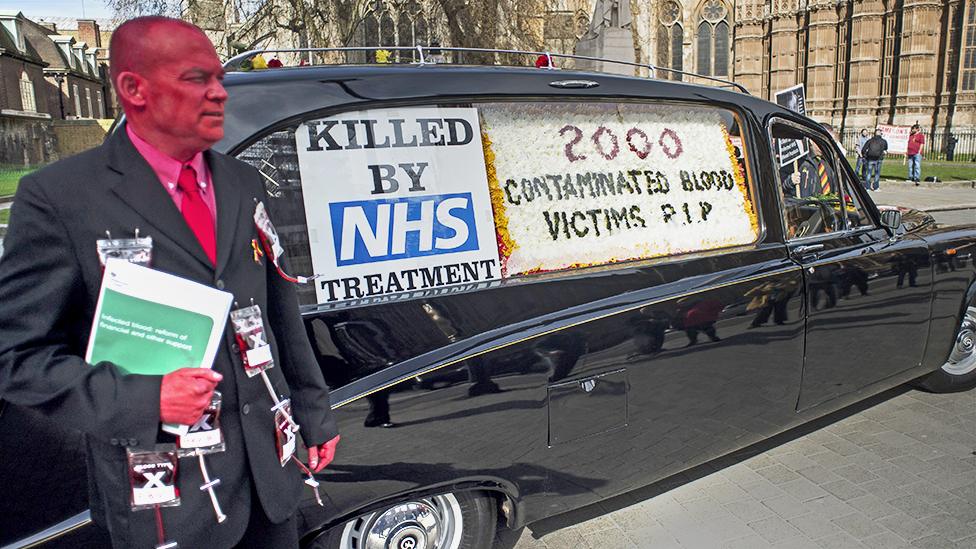
- Published17 January 2024
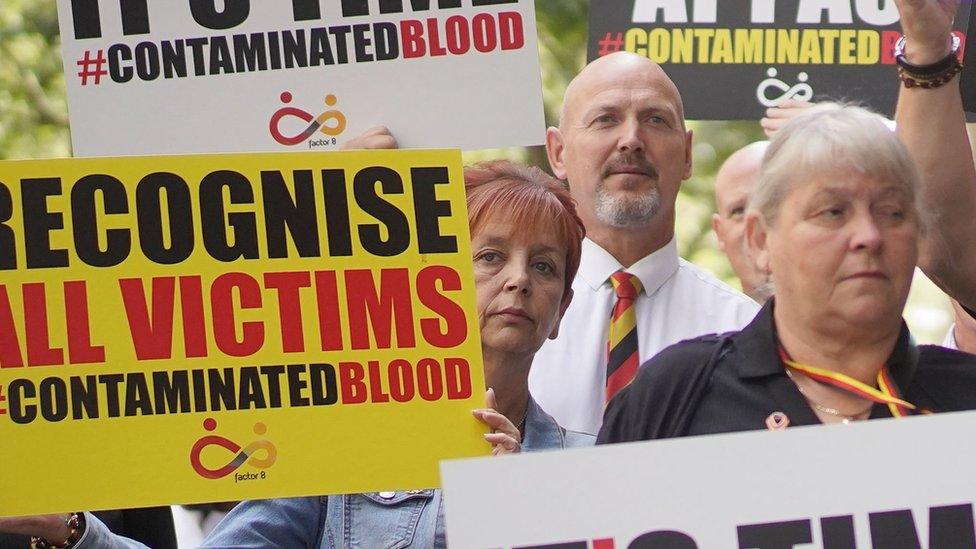
- Published18 December 2023
